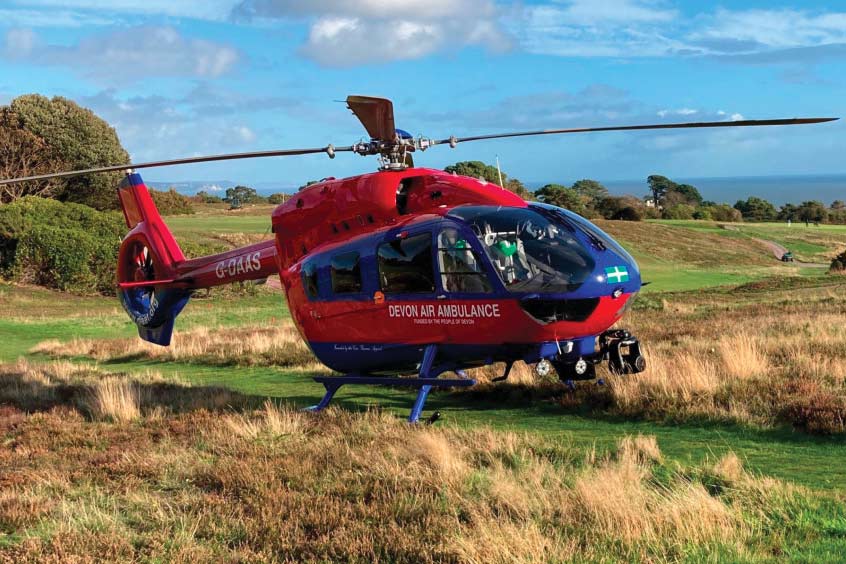Why visit ACE ’25?

Throughout another challenging year for many public services and charities, the crews at UK aeromedical charity Devon Air Ambulance were tasked to attend over 1,828 incidents in 2022. Its two Airbus helicopters and critical care cars went to incidents across Devon and in the neighbouring counties of Cornwall, Somerset and Dorset. Of these, 887 were to help patients with medical emergencies and 929 were trauma-related incidents. Crews assisted 749 male and 419 female patients and 109 children who also needed their expert care. July remains DAA's busiest month of the year and Friday was its busiest day of the week.
Patient services operations director Nigel Hare says: " I would like to pay tribute to our critical care doctors and paramedics who every day deliver time-critical life-saving care to patients in challenging circumstances. This is only possible thanks to the team working tirelessly behind the scenes who ensure our helicopters, critical care cars and medical equipment are always ready to respond. They identify and dispatch our crews to the patients most in need of our help, provide ongoing support to our patients and their families, and manage our service in the 'Outstanding' way that the Care Quality Commission found during its inspection in June."
Sadly, road traffic collisions remain high on the charity's incident report and 2022 saw it tasked to 294 road traffic collisions on Devon's roads. 292 missions were in the hours of darkness where many of the charity's community landing sites were used to enable the aircraft to land safely, and equestrian related incidents (43) were the highest of the missions related to those taking part in sport or leisure activity.
DAA specialist paramedics involved in the charity's Volunteer Responder Scheme (VRS) were also tasked to 58 missions across the county in their own time. Advanced paramedic in critical care and VRS responder Lee Hilton says: 'It's been an absolute pleasure to be able to extend our provision of care beyond that offered by our fleet of helicopters and critical care cars. The VRS has been able to support patients at large scale incidents and when our core teams were already committed to helping other patients. Having our volunteers available and able to respond has allowed Devon Air Ambulance to continue to meet the unpredictable demands of prehospital critical care.
"None of these innovative solutions would be possible without the continued support of every one of our dedicated supporters. On behalf of Devon Air Ambulance, I would like to say a huge thank you to our community who not only keep us responding, but provide us with the opportunity to be a forward thinking, innovative organisation too."